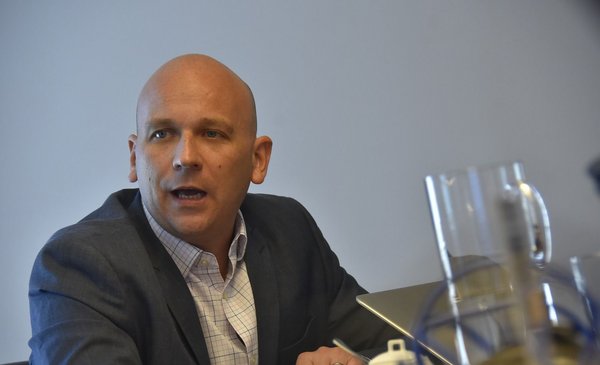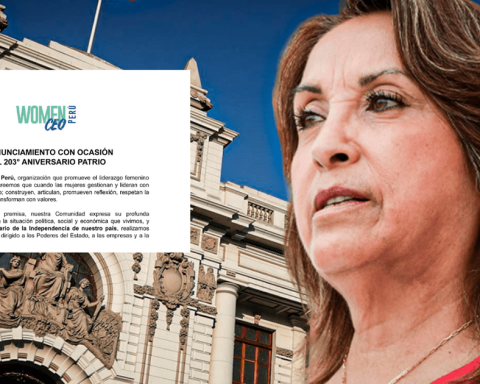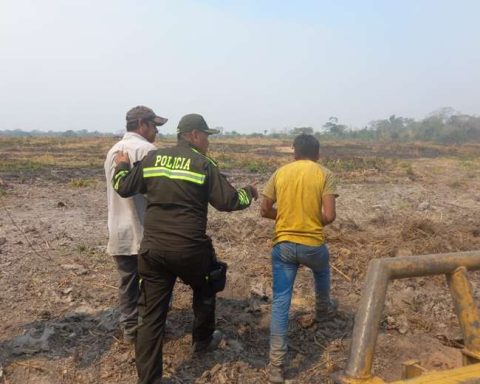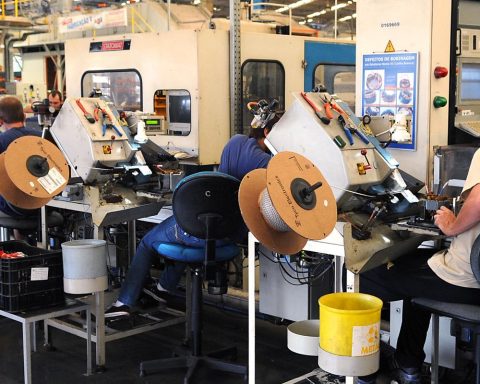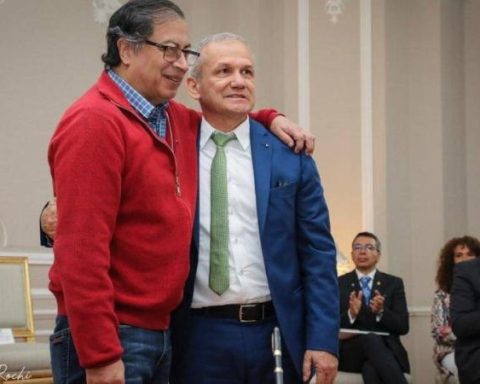The president of the Independent Democratic Union and senator Javier Macaya had a hectic week defining the terms in which he was going to sit down to talk with the government about the Tax Reform after the failure suffered last Wednesday by “the idea of legislating” in the Chamber of Deputies. In this interview, the senator explains the terms and disposition with which he intends to negotiate with the ruling party, lowers the temperature to the accusation made by the government regarding that there were no resources to finance key reforms and addresses the difficulties with the Republican Party and that is polarizing the discussion among the right. He also addresses the issue of security and clarifies that it is no longer time for security commissions, that the Government must implement effective and timely measures.
-Why did the UDI not support with its votes the idea of legislating if it considered it important to clear up the issue of the Tax Reform?
-Because the reform is far from the reality of Chileans, it was a bad reform for the middle class. It punished savings and assets, that is a setback. Minister Mario Marcel raised it from the beginning, we sent many observations, not only us, the different unions, civil society, the College of Accountants, tax lawyers, SMEs and other unions. The Government never considered changing the substantive issues on its part and that, obviously, could only have a response from the opposition, voting against the idea of legislating.
-Was it a triumph of the right or an error of the ruling party that the idea of legislating was not approved?
-I think it is completely clear that it was a mistake by the Government that did not warn in time that some of the votes it had the day before had withdrawn from the room at the time of the vote. The Government knew in advance that it did not count on our vote and that was recognized by the SGPRES minister herself (Ana Lya Uriarte).
-The government had harsh words towards the right. Is there a change in tone on the part of the ruling party regarding the role of the right in voting?
-I think there was a period of 24 hours, after Wednesday, where there was a harmful aggressiveness of the Government. Particularly, something that we did not know about Minister Marcel, which came out of the tone to which he had us more accustomed. I am glad that Minister Marcel has moved away from that discourse that divided Chileans and politicians into good and bad. That discourse sought polarization, hatefulness, with zero self-criticism. I am pleased that the usual tone has returned and I hope that the Government can follow the same line to talk and discuss important issues for Chileans.
-Is the UDI willing to discuss the Tax Reform this year or would you prefer to postpone its discussion until next year?
-The Government has to specify which reforms it is going to finance, for what coverage, how much it needs for each of them and look for the best instruments for that.
– The ruling party has said that without the Tax Reform several key social projects would be left without financing. Doesn’t this speed up the process of the Tax Reform?
-The Government already has a large part of its program and reforms financed with lithium and if it reactivates the paralyzed investments. There are a number of investments that would generate a significant amount of permanent income that are on hold for political reasons.
-As?
-The project evaluation system today has projects like Plaza Egaña or emblematic mining projects like Dominga, which have been canceled solely for political reasons. Activating them would mean a significant income for the treasury and there would be no need to raise taxes or affect the middle class and people with lower incomes.
-Do you consider that the Tax Reform is not essential?
-What is perceived is that the Tax Reform is a political objective in itself. What we propose is to sit down to negotiate after seeing all the sources of resources that the tax office has and that we have a discussion regarding public spending.
-One of the key issues that the Reform seeks to resolve is that of the Universal Guaranteed Pension. Would you postpone the PGU?
-Regarding the PGU and the direct transfer of resources to people, we agree, but we believe that first it is important to review inefficient public spending because we are full of examples and that must be reviewed. It is false that the tax increase affects only the richest and it is false that more resources for the State equals better social services.
-But one of the key points is to increase resources.
In recent years, the health and education budgets have increased, but we continue to have a significant deficit in waiting lists and the quality of public education has deteriorated. The best example is the emblematic high schools that are managed by the “overalls”. whites” and subsists in violence.
REPUBLICAN PARTY
-José Antonio Kast pointed out on Sunday that he does not approve the tax increase, that the Republican Party is about to lower taxes. Why would the UDI support increasing taxes?
-The UDI, and particularly in Chile. Come on, we make decisions with the utmost seriousness and we know that the correct decisions are sometimes unpopular, as happened with the constituent process within our sector.
We did it in the constitutional agreement and we are happy because the departure of the new process and the installation of the Expert Commission is very encouraging and reaffirms that the decisions we made were in the right direction.
-Was it expensive for you to support the new constituent process?
-We are a coalition that is preparing to govern, that in a following period has to carry out this responsible exercise every day and we will always contribute with concrete proposals. The country is hurt by a position that proposes ideas through slogans, our parliamentarians (Chile Vamos) have proposed tax reductions on several occasions and for more than 10 years. This is not something exclusive to the Republican Party, this has been present in different bills of the benches of Chile Vamos and the Alianza por Chile.
-Why insist on lowering taxes if there are so many needs in health, pensions, public works, education?
–Chile needs to grow. We have been stagnant for almost 10 years and for that a reasonable tax system is required, which invites investment and not one that scares it away, as was the tax reform that was planted. We pay close attention to international examples such as Ireland, which made a very powerful decision three decades ago that allowed it to go from being one of the poorest countries in the European Union to one with a per capita income of 100,000 dollars per capita, surpassed in Europe only by Norway, Switzerland and Denmark. That is not the patrimony of a party.
-The Republican Party is the worst enemy of Chile Vamos?
-We do not consider the Republican Party an adversary. Without going any further, in Congress we often agree on important votes as happened with the Tax Reform, but it seems to us that they do have, in some way, a fixation with attacking Chile Vamos.
-Because?
-Because its political axis is articulated more in attacking Chile Vamos, in being our adversary and that has to do with its objective of occupying our electoral niche and seeking to capture voters who may have voted for Chile Vamos before. It seems to me that this is not broadening the spectrum of the opposition, it is a decision that they have made and, well, they will have to take responsibility for that decision.
BUSINESS SECTOR
-The vice president of the Production and Commerce Corporation (CPC), Susana Jiménez, pointed out that “what was rejected is not the idea of a tax pact.” Is the business world putting pressure on the political sector to advance on the tax issue?
–It seems to me good that the unions raise their point of view with total freedom. What I read in the interview that you mentioned, is first of all a concern for the conditions for investment and for strengthening the economy, which is something that we share and the rejection of the tax reform is an opportunity to start a different conversation. As a political party, we represent thousands of Chilean workers, SMEs and companies that carry out economic activity in Chile and we think it is important to gather their concerns.
-More than that of businessmen?
-In our political work in Congress, we do not have a defense of any sector in particular, but rather a general view of how the tax issue can benefit the growth and development of our country. The country has to solve social deficiencies and we support our decisions with data, even if they are sometimes unpopular. We may agree with the businessmen and on other occasions we may not agree with them. We have to continue improving pensions and we have to solve the demand for nurseries and be able to face the scourge of crime with better tools. We have to see how we deal with that.
-What are the issues that the UDI will not compromise on in this reform?
-Basically not affect the most vulnerable and the middle class. Even if you want to revive the rhetoric of the class struggle, in which this only affects the richest, we are going to end up transferring the problems to the most vulnerable people. That rhetoric of class struggle, where taxes are only collected from a sector of the population, I believe that our country and particularly the population, have realized that it is a fallacy, because finally when there are tax increases they end up hitting the most vulnerable and middle class.
SECURITY THEME
-The issue of security is a priority in the surveys and the General Director of the Carabineros called on the political world to act more quickly. Are there possibilities of reactivating the security table with the Ministry of the Interior?
-The time for talks has passed. The Government turned one year old and we are waiting for it to start processing the reforms it announced. The question is why you have not entered the projects and why you have not given the urgency, because our votes are there.
Every time a police officer is attacked or an official dies at the hands of a criminal, the crime celebrates. Carabineros needs support with concrete facts and not with more statements. Calling attention to the General Director of Carabineros is a very bad sign. The words of the widow of the murdered policeman expressing her desolation and her reproach. The Government can only interpret millions of Chileans who see that we are losing the battle against crime.
-There is no self-criticism of Chile. Vamos for abandoning the security table in a context of demand to seek solutions on the issue?
-For months we participated with good will in that table. The minister was about to recognize those agreements, but President Boric pardoned 12 criminals and that put an end to the talks because that was an outburst, a sign of impunity for the security table. He let dangerous criminals go free and we left the table as a sign of consistency. It is evident that you cannot fight crime with one hand and with the other release those convicted of crimes that caused immense damage to Chile. Our will is to approve the projects that go along the lines of providing the Carabineros with better tools, greater powers, to condemn with greater force and persecution of the people who attack the Carabineros. We hope that the Government goes from speech to action and gives urgency to the projects.
– How does the UDI intend to advance in the discussion of the security issue?
Here we have a lot of projects that we have tried to promote in recent years. I appreciate that the Government has been willing to change its mind in a state of constitutional exception, to support the Carabineros, to give our police greater powers, on immigration issues, to review the rules on the use of force of arms by the carabineros .
We are willing to discuss these projects and we call on the Government and particularly the left to stop giving ambiguous signals when summoning the General Director of the Carabineros, processing pardons, which only make one mistrust the will to advance on this agenda.







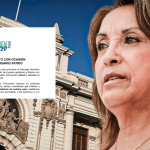


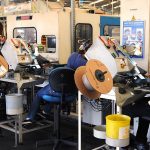

![[Video] Motorcyclist almost lost his life by going at full speed in a curve: he was saved by a miracle [Video] Motorcyclist almost lost his life by going at full speed in a curve: he was saved by a miracle](https://latin-american.news/wp-content/uploads/2023/03/Video-Motorcyclist-almost-lost-his-life-by-going-at-full-1024x614.jpg)
